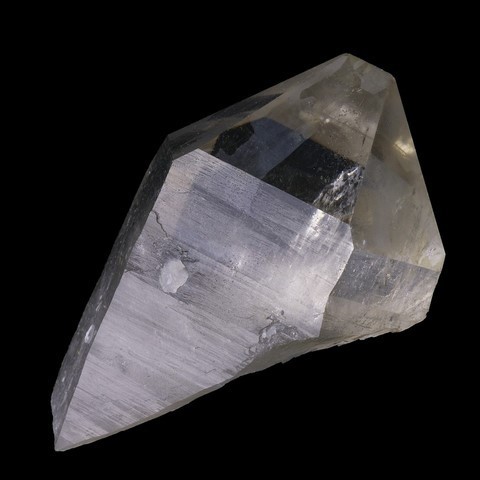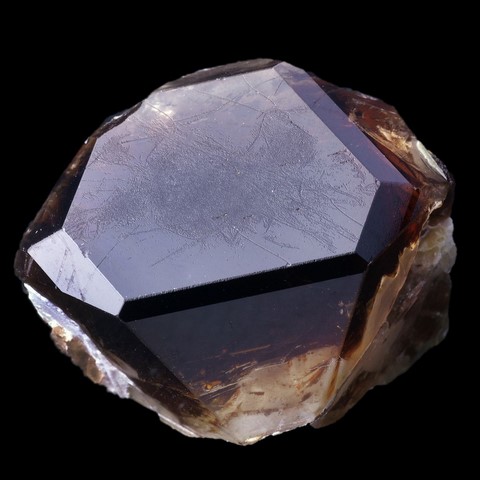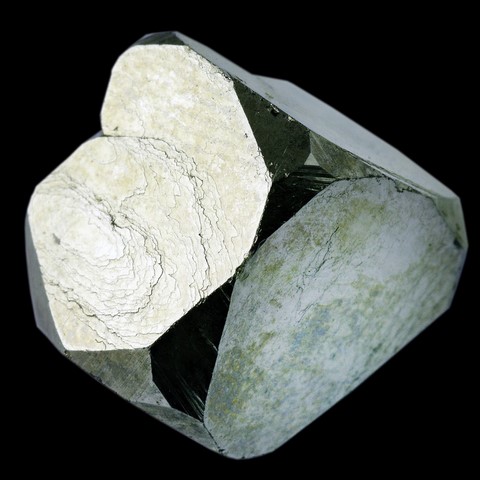 What is a crystal in mineralogy ?
What is a crystal in mineralogy ?
Crystal : definition
A crystal is a regular polyhedron bounded by flat surfaces called faces or planes. It is formed under the action of atomic forces which arise in a chemical compound during its passage under natural conditions from the gaseous or liquid state to the solid state : this is crystallization. Crystal is the normal form of a mineral but also of all solid chemical compounds ; this must however result from the natural growth of the mineral.
A crystal is first defined by an internal atomic structure, the crystal lattice which conditions its macroscopic form. We can also define it as being the regular repetition to infinity in the three directions of the space of an atom or a group of atoms (the crystal unit). This internal atomic structure controls most of the physical characters of the mineral. The faces of a crystal, like the edges, are planes of high atomic density.
The conditions necessary for the formation of a geometrically perfect crystal are very rarely met. In nature, most minerals therefore do not form crystals with clear geometric faces (called automorphic) but appear in the form of crystalline aggregates composed of a multitude of apparently shapeless grains (called xenomorphic) but all possessing a atomic structure defined, therefore crystallized.
The word "crystal" comes from the Greek krystallos (ice), a name given since Antiquity to limpid quartz, which was considered to be ice so strongly frozen in high mountains that it was impossible to make it to melt. This belief continued until the end of the XVIth century.
A crystal is first defined by an internal atomic structure, the crystal lattice which conditions its macroscopic form. We can also define it as being the regular repetition to infinity in the three directions of the space of an atom or a group of atoms (the crystal unit). This internal atomic structure controls most of the physical characters of the mineral. The faces of a crystal, like the edges, are planes of high atomic density.
The conditions necessary for the formation of a geometrically perfect crystal are very rarely met. In nature, most minerals therefore do not form crystals with clear geometric faces (called automorphic) but appear in the form of crystalline aggregates composed of a multitude of apparently shapeless grains (called xenomorphic) but all possessing a atomic structure defined, therefore crystallized.
The word "crystal" comes from the Greek krystallos (ice), a name given since Antiquity to limpid quartz, which was considered to be ice so strongly frozen in high mountains that it was impossible to make it to melt. This belief continued until the end of the XVIth century.



